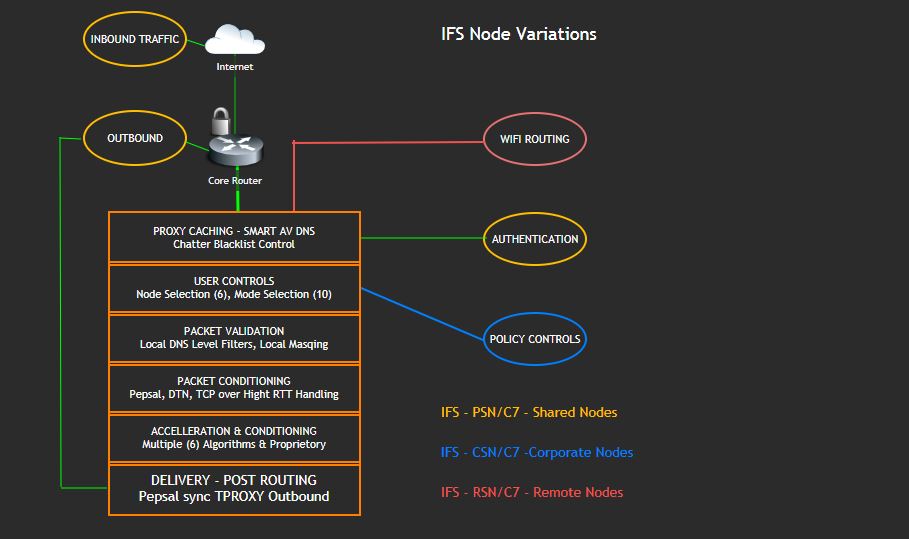Basic
The IFS system (In Flight Server) are the nodes that process the data sent and received by your device, there are 6 sections that deal with this, and explanation can be found on the technical page. These nodes come in three variations, and can be located in any global location. The RSN type is compact and can be hand carried by the user, and compliments the ground infrastructure.PSN/C7 - Public Service Node
These are the standard nodes deployed by us in several locations to service traffic from any location or device, they are shared resources for multiple clients and are dynamic in size, ie, they grow according to traffic requirements. After the Authentication process, the packets undergo a series of conditioning steps. Autehntication can be by Proxy or Radius.CSN/C7 - Corporate Service Node
The CSN version has all the PSN abilities but it the property of the client, it does not have public (subscribed) access, the location is the clients choice. Having a node to yourself gives the advantage of control , with direct node access to determine policy controls such as throughput, ports, URLS, IP's and even MAC's. Authentication method is also the clients choice, with Radius, Proxy and even direct routing (IP).RSN/C7 - Remote Serivce Node
Our latest addition in the RSN node, this is an entire server bundled into a tiny 60cm x 30cm x 10cm unit, and is carried with the user or aircraft. Connection is via built in wifi to the aircrafts system, and to the users devic(s) by Ethernet, USB or bluetooth. The RSN is also user controllable for policies and can be accessd by IP or via the built in LCD screen on the top of the unit. The RSN can be used as a standalone or as a compliment to the normal nodes (CSN or PSN), given the user packet processing on both sides of the link.

